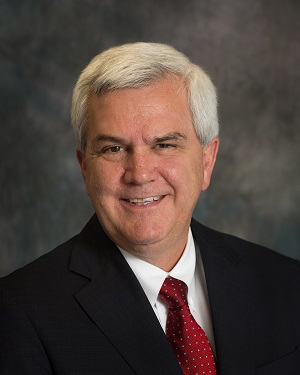By Howard B. Jackson and Rosalia Fiorello
In light of movements such as #MeToo and #TimesUp, companies are preparing management and Human Resource (HR) departments to combat and investigate harassment in the workplace. Many HR professionals are well-equipped to handle such investigations and provide appropriate advice for corrective steps as needed. But suppose the alleged harasser is a C-suite member rather than a rank-and-file employee or low-level supervisor? (“C-suite” members generally include officers and senior management such as President, Vice President, Chief Executive Officer (CEO), Chief Financial Officer (CFO), and Chief Information Officer (CIO).) This article explores ideas for preventive steps that can help reduce the likelihood of receiving such a complaint, and thoughts about how to handle the investigation and follow-up if one does occur.
A good starting point is the employer’s policy. The policy should provide information about the type of conduct that is prohibited, including examples. It should provide clear direction regarding how to communicate a concern, usually to a member of the HR department. The policy should provide alternate reporting mechanisms as well. For example, it may state that if the concern is with the CEO, a report should be made to the Vice President of HR, who is authorized to report the concern to the Board of Directors. Alternatively, the policy may provide that a report may be made directly to the Chair of the Board of Directors. The point is to let employees know how to communicate a concern when a high-ranking member of management is the subject of concern.
Training is another essential preventive component. It should emphasize that the no-harassment policy applies to everyone regardless of rank, and everyone should receive training regardless of rank. One of the best preventive measures is “buy-in” from the top. For this reason, it is important that C-suite personnel attend and actively participate in the training along with others. This sends a message both to the C-suite members and to others present that the subject of harassment is significant, worthy of time and attention, and taken seriously by the company, including those at the highest levels of the organization.
Young employees or temporary workers such as summer interns or under-age minors should not be overlooked, and should also receive training. They may be more susceptible to being taken advantage of by coworkers or superiors, especially members of upper management who could attempt to take advantage of their position.
If – despite appropriate preventive measures – allegations of harassment by a C-suite member arise, there are special considerations. First, the organization should notify their employment law attorney and bring them into the situation immediately. There are obvious needs for legal advice, and for decisions on strategic directions as discussed below.
The organization should consider whether to retain a third-party investigator. The answer will frequently be “yes,” even if the executive does not directly oversee the highest-ranking HR official. The relationship between the HR officer and the accused – whether congenial or contentious – could create questions about the objectivity of the investigation. In any event, the decision of whether to use a third-party investigator should be made carefully, as the investigation will be important not only to the attempted initial resolution, but to defense of any subsequent legal challenge.
If a third party will be retained, the decision of who to retain is important. Ordinarily, the organization does not want its usual employment law attorney handling the investigative role, because the role of legal counsel and investigator are separate functions. In addition, if the attorney conducts the investigation then he or she becomes a fact witness, and an attorney cannot be both a witness and a legal advocate in the same proceeding. Thus, using the attorney as an investigator would result in losing them as the organization’s defense counsel, if circumstances were to evolve into litigation.
The organization should also consult with its employment law counsel to identify an appropriate third-party investigator. Sometimes this can be another attorney in the community, or there are also a variety of experienced HR consultants who can fill this role.
Another question is: who will receive the investigator’s report? If the accused is a C-suite member but not the CEO, then it may be that the CEO and the highest-ranking HR official would be the proper recipients. If the accused is the CEO then the investigator should be retained by the Board of Directors and the investigator’s report should be provided to the Board of Directors.
With respect to corrective action the usual rules apply. The action to be taken depends on the facts found in the investigation.
It is important to assure both the accused and witnesses that no retaliation may be permitted. This is especially important where the accused is a C-suite member because there will almost certainly be widespread perception that if the allegations do not result in that person’s removal then retribution will follow, and this cannot be allowed.
It is also appropriate to provide feedback to the accuser after the investigation has concluded and the corrective action (if any) has been decided. Whether the accusations had merit or not the accuser should be provided assurances that retaliation will not be tolerated, and given specific instruction for how to communicate if he or she believes it is occurring.
Hopefully preventive measures will be effective and your organization will not have the unfortunate experience of such an investigation. If the issue does arise, work closely with your employment law attorney from the start, as there are many possible twists and turns and receipt of good legal advice along the way can be invaluable.

Howard B. Jackson, Member
Wimberly Lawson Wright Daves & Jones, PLLC hjackson@wimberlylawson.com www.wimberlylawson.com

Rosalia Fiorello, Associate
Wimberly Lawson Wright Daves & Jones, PLLC
rfiorello@wimberlylawson.com
www.wimberlylawson.com
